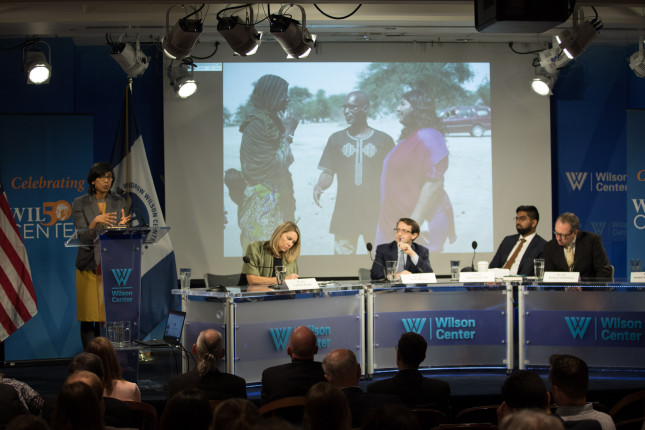-
From Resolution to Solution: UNEA’s Unique Opportunity to Tackle Environmental Dimensions of Armed Conflicts
›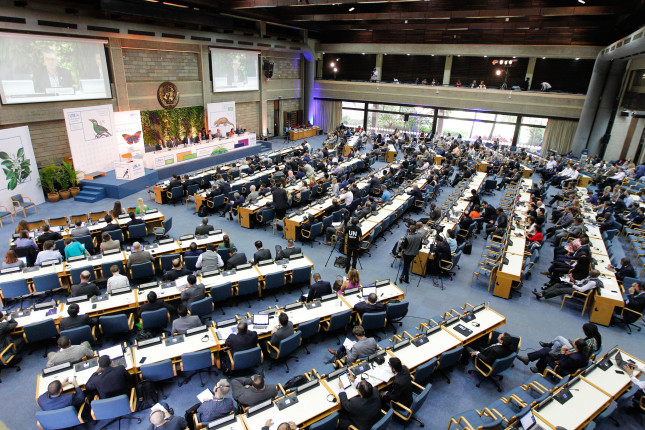
When the Fourth Session of the UN Environment Assembly (UNEA-4) takes place in Nairobi starting March 11, governments, international organizations, and civil society organizations will discuss issues on the theme of innovative solutions for environmental challenges and sustainable consumption and production with over 30 draft resolutions submitted for discussion. With few international forums where the environmental dimensions of conflict can be properly discussed, we were optimistic about the past resolutions tackling this topic.
-
Democracy Under Assault: Guatemala Attempts to Silence Eco-populists
›
While the U.S. has been fixated on President Trump’s contentious border wall project, another more ominous threat facing Guatemalans is building internally. In a swift reversal, many politicians and scholars who have previously argued for directing increased U.S. aid to communities in Central America’s Northern Triangle—Guatemala, El Salvador, and Honduras—as a humanitarian alternative to the border wall, are now calling on Congress to suspend some forms of aid to Guatemala, which they now see as the more humane option.
-
U.S. Intelligence Community Recognizes Climate Change in Worldwide Threat Assessment
›February 5, 2019 // By Isabella Caltabiano
The 2019 Worldwide Threat Assessment of the US Intelligence Community, released on January 29, mentions climate change as a threat that is “likely to fuel competition for resources, economic distress, and social discontent through 2019 and beyond.” The report features new topics such as election interference and threats to economic competitiveness while still including continuing threats such as cyber espionage and attacks, terrorism, and climate change. As a statement from Director of National Intelligence (DNI), Daniel R. Coats, for the Senate Select Committee on Intelligence, the assessment provides an overview of the national security threats facing the nation.
-
Security Council Debates how Climate Disasters Threaten International Peace and Security
›
On 25 January 2019, the UN Security Council held an open debate to discuss the security implications of climate-related disaster events. The meeting, initiated by the Dominican Republic, underscored the global nature of climate-related disasters. Most speakers highlighted the need for better climate risk management as an important contribution to safeguarding international peace and security. The debate marks the beginning of a year in which climate security ranks high on the UN’s agenda.
-
Anticipatory Intelligence: Climate Change in the National Intelligence Strategy
›January 29, 2019 // By Marisol Maddox
On January 22, Director of National Intelligence (DNI) Daniel R. Coats released the National Intelligence Strategy (NIS) for 2019, which represents a departure from the last such strategy. While the previous 2014 National Intelligence Strategy specifically noted that food, water, and energy resource insecurity contribute to instability, the 2019 NIS does not mention these concerns beyond a single reference to climate change and resource scarcity as “pressure points.”
-
China’s Demand for Raw Materials Harms Communities Around the World
›
The Solomon Islands’ “commercially available forests will be gone in about 15 years” due to deforestation, said Lela Stanley, a Policy Advisor for Global Witness’ Asia Forests team at the Wilson Center’s recent China Environment Forum event. It looks like they are logging about 20 times faster than they should for the logging to be sustainable, she added. While timber from the islands is exported to China—the world’s largest importer and consumer of timber products—local residents and communities bear the brunt of the environmental cost of lost ecosystem services suffered at the hands of the timber trade. And they aren’t alone. China’s insatiable demand for raw materials and its harmful resource extraction practices wreak havoc on the ecosystems of its many producer countries.
-
Ken Conca on Transboundary Water Basin Management
›Friday Podcasts // Water Stories (Podcast Series) // January 18, 2019 // By Linsey Edmunds & Truett Sparkman “When we start talking about water in the context of security, we’re immediately drawn to a conversation about conflict. And that’s often framed in terms of scarcity of water and a real zero-sum game around water, where scarcity begets grievances, which beget instability and conflict,” says Ken Conca, Professor at American University’s School of International Service, in this week’s Water Stories podcast. Of the world’s 276 transboundary water basins, fewer than half are governed by an agreement or accord that allocates use of the shared water between countries—and less than a quarter of these accords include all the riparian states in a basin.
“When we start talking about water in the context of security, we’re immediately drawn to a conversation about conflict. And that’s often framed in terms of scarcity of water and a real zero-sum game around water, where scarcity begets grievances, which beget instability and conflict,” says Ken Conca, Professor at American University’s School of International Service, in this week’s Water Stories podcast. Of the world’s 276 transboundary water basins, fewer than half are governed by an agreement or accord that allocates use of the shared water between countries—and less than a quarter of these accords include all the riparian states in a basin. -
50 Years of Water at Wilson: Water, Conflict, and Cooperation (Part 1 of 2)
›
A number of countries across North Africa, the Middle East, into Central and South Asia are “at risk of failure if they can’t get the water equation right,” said Aaron Salzberg of the U.S. Department of State, at a recent Wilson Center event celebrating 50 years of working on water’s connection to conflict and cooperation. The event brought together experts from government, NGOs, and academia for a comprehensive look at the first year of the U.S. Global Water Strategy and new research and practice on water, peace, and conflict. Either now or sometime in the near future, said Salzberg, if fundamentally water insecure countries lacking access to sustainable supplies of safe drinking water and basic sanitation do not address their water problems, they will face increased risk of failure and greater fragility.
Showing posts from category environmental security.



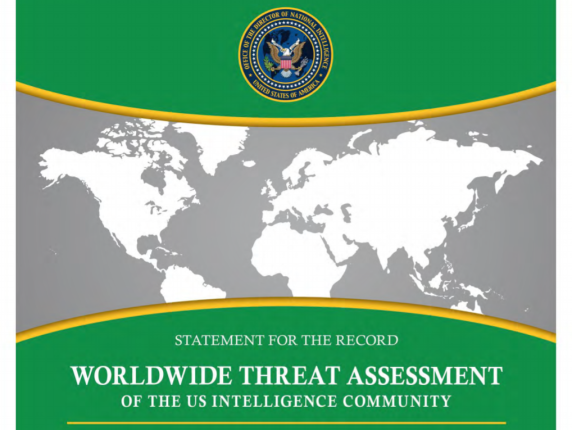
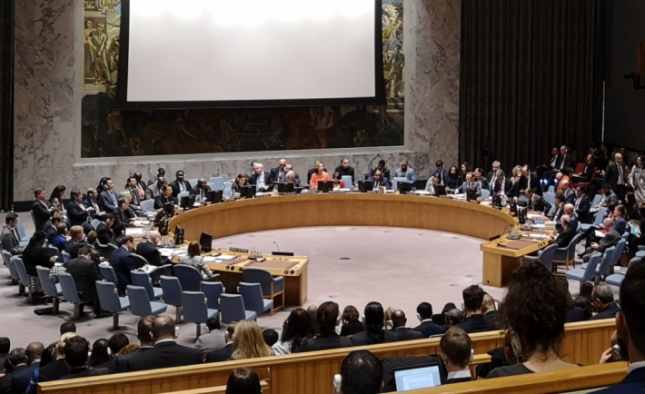

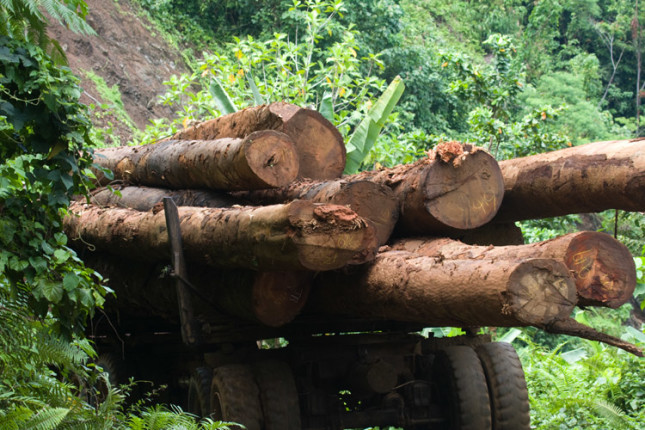
 “When we start talking about water in the context of security, we’re immediately drawn to a conversation about conflict. And that’s often framed in terms of scarcity of water and a real zero-sum game around water, where scarcity begets grievances, which beget instability and conflict,” says Ken Conca, Professor at American University’s School of International Service, in this week’s Water Stories podcast. Of the world’s 276 transboundary water basins, fewer than half are governed by an agreement or accord that allocates use of the shared water between countries—and less than a quarter of these accords include all the riparian states in a basin.
“When we start talking about water in the context of security, we’re immediately drawn to a conversation about conflict. And that’s often framed in terms of scarcity of water and a real zero-sum game around water, where scarcity begets grievances, which beget instability and conflict,” says Ken Conca, Professor at American University’s School of International Service, in this week’s Water Stories podcast. Of the world’s 276 transboundary water basins, fewer than half are governed by an agreement or accord that allocates use of the shared water between countries—and less than a quarter of these accords include all the riparian states in a basin.